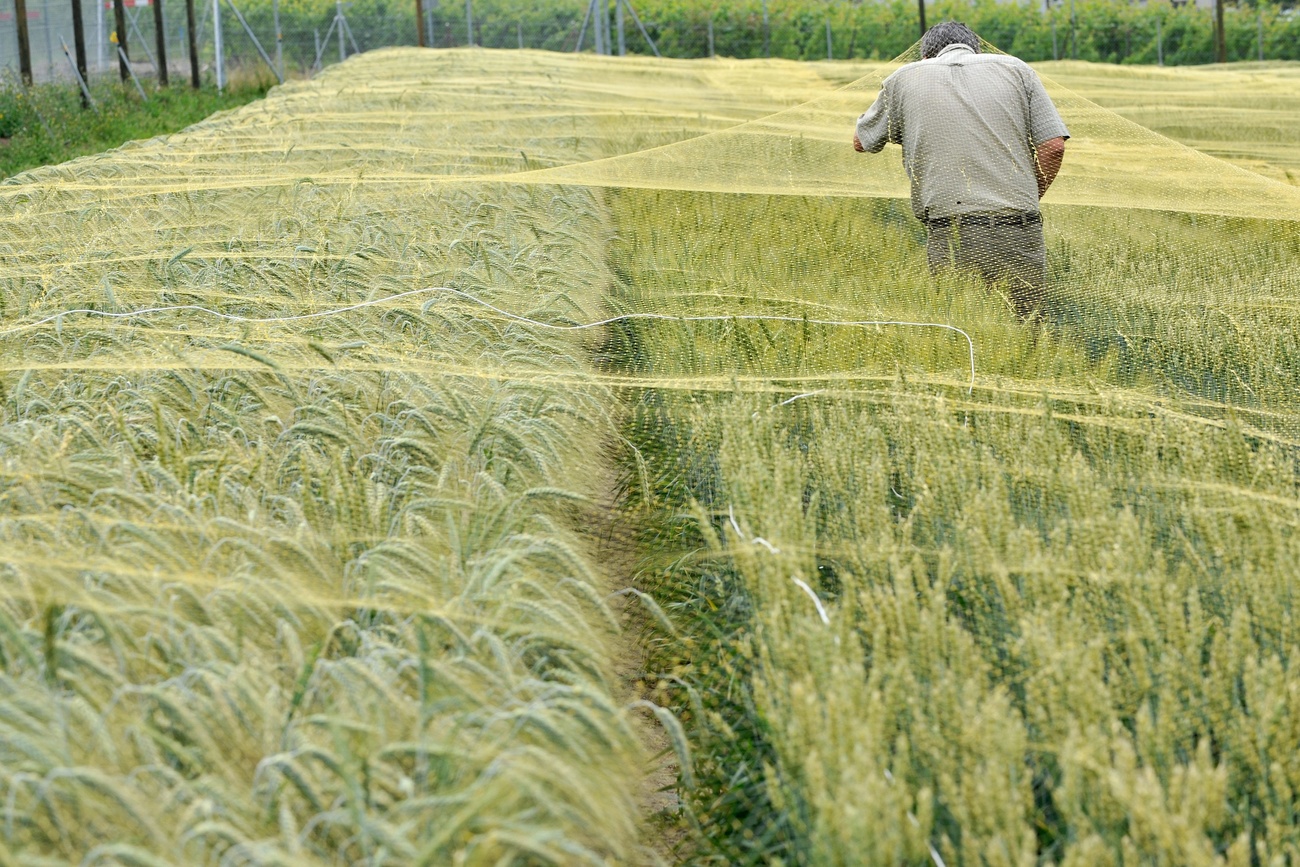
Swiss petition to curb genetic engineering gets nearly 25,000 signatures

A petition in Switzerland to extend a moratorium on genetic engineering, or GM technology, for a fifth time has been handed in with 24,780 signatures.
The petition was submitted on Thursday in Bern, with authors calling for a transitional arrangement until the implementation of the planned Food Protection Initiative. This is set be launched in the autumn and will introduce strict rules for genetic engineering, according to a press release issued on Thursday.
Behind the petition is the Association for GMO-Free Food, which is worried that the current moratorium on genetic engineering, in place since 2005, is to expire at the end of 2025.

More
Swiss GMO ban: ‘What are we afraid of?’
Genetic engineering companies want the Swiss authorities to lift the moratorium, which states that genetically modified organisms can currently only be cultivated in Switzerland for research.
However, an easing is on the cards: in 2022, parliament instructed the Federal Council, Switzerland’s executive body, in 2022 to submit rules on how genetically modified organisms without cross-species genetic material could be exempted from the moratorium. However, this will only be the case if they have added value for all parties compared to conventional breeding methods.
In autumn 2023, the government therefore expressed its intention to proceed cautiously with a possible risk-based approval, while taking into account concerns among the population.
The Food Protection Initiative calls for freedom of choice for consumers and the protection of humans, animals and the environment from the risks of genetic engineering. The genetic engineering moratorium, which has been extended four times to date, should be again extended until the planned amendment to the constitution comes into force.
Adapted from German by DeepL/kp
This news story has been written and carefully fact-checked by an external editorial team. At SWI swissinfo.ch we select the most relevant news for an international audience and use automatic translation tools such as DeepL to translate it into English. Providing you with automatically translated news gives us the time to write more in-depth articles.
If you want to know more about how we work, have a look here, if you want to learn more about how we use technology, click here, and if you have feedback on this news story please write to english@swissinfo.ch.

In compliance with the JTI standards
More: SWI swissinfo.ch certified by the Journalism Trust Initiative



























You can find an overview of ongoing debates with our journalists here . Please join us!
If you want to start a conversation about a topic raised in this article or want to report factual errors, email us at english@swissinfo.ch.